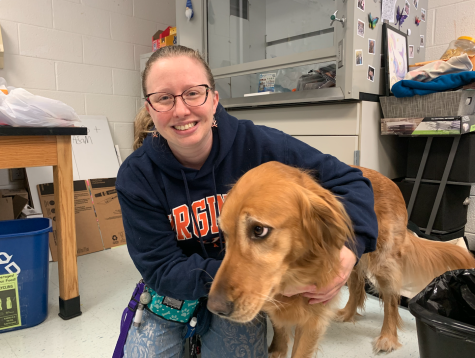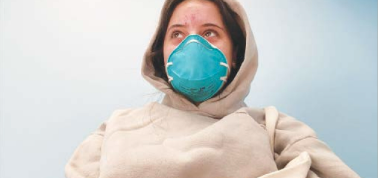How Roe V. Wade is affecting women’s health
There was recently a draft leaked stating that the supreme court plans to reverse the 50-year-old constitutional right of Roe v. Wade which allows abortions in all 50 states.
This case was confirmed by the courts, although there will not be any decisions made until June or July.
Due to this leak of information, there was a massive uproar that came from this and one of the main concerns that many have is the effect banning abortions will have on women’s health.
“Abortions being banned is inhuman. Women who have unplanned pregnancies should have a choice on what they want to do. Many women do not have the right living circumstances or can even afford it.” said junior Litzy Rivas
“It’s actually ridiculous that men are dictating and choosing what we do with our bodies. Our body, our choice,” said Rivas
If Roe is reversed, it will not completely irradicate abortions as a whole, but rather safe abortions.
Maternal health is at great risk because of the right to safe abortions, which is a human right, could potentially result in a rise of maternal death.
According to the CDC, about 700 women die yearly in the United States from maternal health risks and about 3 out of the 5 of the causes of those deaths are preventable.
Health experts believe that if Roe is overturned, this exponentially increased the number of maternal mortality.
As stated by the commonwealth fund which is a program that raises awareness for better health care in underserved communities, the US mortality rate was three times the rate amongst Black people compared to white people.
“The new abortion laws that are trying to be passed is a direct attack on our human autonomy. I think it is completely unfair for the government to have control over our bodies.” said junior Rufatan Beyene
An increase in maternal deaths will directly affect neighborhoods of poverty and people of color far more.
To get a safe abortion means taking a pill that was approved by the Food and Drug Administration in 2000. The pill consists of mifepristone and misoprostol which is only allowed to be given out by a registered health professional.
According to the Guttmacher institute which is an abortion rights advocacy group, by the year 2020 over half of all US abortions were done taking said pill.
In December 2020, the FDA decided on banning the pill to be delivered directly to homes in Ohio, Oklahoma, Montana, Indiana, and Arizona.
Studies have shown within the National academies of sciences have proved that taking the pill is the safest form of abortion. Only 1% of women faced health complications, none of whom died.
If abortions are banned, it will ban all abortions including abortions done for medical reasons.
Women who do have an abortion if it is against the law in their state are likely to be criminalized and prosecuted, regardless of the intent of their abortion.
People of color and those in the LGBTQ+ community are at the biggest risk for criminalization and prosecution under the ban according to Dr. Jamila Perritt, the president, and CEO of Physicians for Reproductive Health.
“By banning abortions it will not completely get rid of abortions in this country, it will only ban safe and accessible abortions.” said junior Ellie Davis
“Those who want to ban abortions don’t actually care about the child or mother, they only care about power,” said Davis
There are also many long-term consequences to unwanted pregnancies. A study conducted within the U.K. found that nine months following the birth, mothers of an unwanted pregnancy are twice as likely to experience psychological distress.
Another study was conducted by Turnaway which showed that women who are denied an abortion are more likely to stay with their violent partners out of lack of support and financial security.
It also proves that those children are more likely to live below the poverty line compared to children of women who previously had abortions.

Senior Sereene Darwiesh has been on The A-Blast since freshman year. She spends her time reading and hanging out with friends, her hobbies consist of baking...










